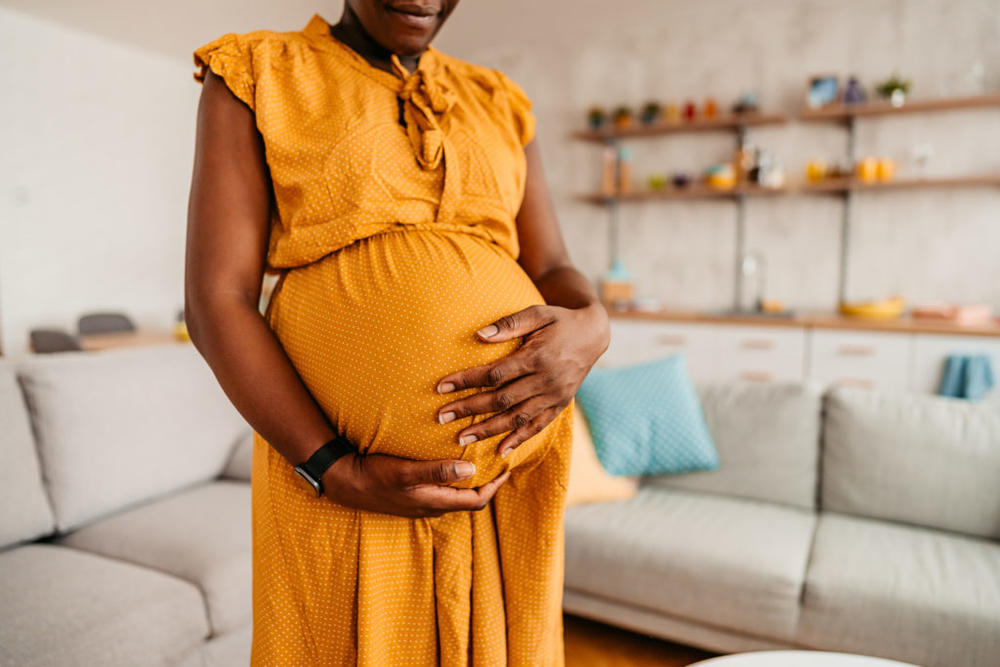
Caption
Georgia’s maternal mortality rate is among the worst in the country, with Black women dying at more than twice the rate of white women.
Credit: PBS News Hour
LISTEN: Federal funding is coming to programs in Marietta, Macon, Dublin, and Atlanta to address economic disparities in maternal health and maternal mortality rates across Georgia. GPB’s Ellen Eldridge has more.

Georgia’s maternal mortality rate is among the worst in the country, with Black women dying at more than twice the rate of white women.
Black women in Georgia are twice as likely to die of pregnancy-related complications than white women.
This has been true for decades.
Maternal death rates have consistently been the highest among Black women, and those high rates more than doubled over the last twenty years. For Native American and Alaska Native people, the rates have tripled.
Earlier this year, the Atlanta-based Centers for Disease Control and Prevention released new maternal mortality data, showing that 817 women died during 2022 — a decrease from the 1,205 deaths the year before, but roughly in line with the 861 deaths from 2020.
PREVIOUS COVERAGE: Georgia moms aren’t getting the right care after pregnancy. A report finds that has fatal outcomes
The U.S. Health Resources and Services Administration (HRSA) is now working with the Black Maternal Health Caucus on a year-long Enhancing Maternal Health Initiative that addresses maternal mortality and maternal health disparities in partnership with mothers, grantees, community organizations, and state and local health officials.
HRSA Administrator Carole Johnson visited Georgia earlier this year to announce the six Healthy Start grantees.
"We fund work to address the needs in rural communities," she said. "We fund community health centers so people have access to health care regardless of their ability to pay."
More than $1 million in federal money will support the Atlanta Healthy Start Initiative from the Center for Black Women's Wellness.
The maternal and infant health program is designed to support moms-to-be during pregnancy and throughout the critical postpartum period.
MORE: Pregnancy complications can be deadly. Black Maternal Health Week looks to change that
Care for approximately 700 pregnant and postpartum women, dads, and infants is coordinated by nurses, family support specialists and a mental health provider annually.
"We wanted to be able to bring all of those grantees together and say, 'How can the whole be greater than the sum of the parts?'" Johnson said. "'How can we all work together to tackle this maternal mortality challenge?'"
Grants were also awarded to Southside Medical Center, Wellstar Health, Mercer and Georgia State Universities, and the Laurens County Board of Health.
Federal money is often distributed to states or counties, and Johnson said it's rare that HRSA gets to directly fund the work being done on the ground where there are direct relationships between pregnant women and new moms who are known to need additional services and support to have the best possible healthy outcomes.
"They were able to bring in folks who really knew some of the rural communities, too, around the region who are able to be just a good resource because they were trusted messengers," she said.